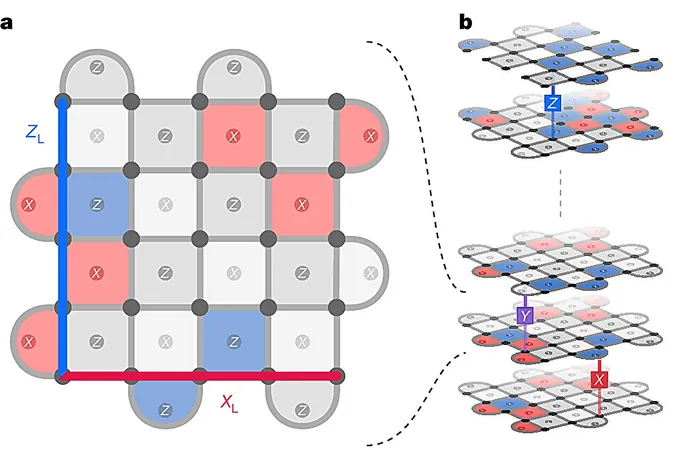
Breakthrough! Google DeepMind Unveils AI Decoder to Revolutionize Quantum Computing Error Correction
2024-11-25
Author: Daniel
Overview of the Breakthrough
In a groundbreaking development, researchers at Google DeepMind, in collaboration with experts from Google Quantum AI, have unveiled an innovative AI-based decoder designed to identify errors in quantum computing. This advancement is critical as it tackles one of the most pressing challenges in creating efficient quantum computers: error correction.
Significance of the Research
The research findings, published in the prestigious journal Nature, outline how the team harnessed machine learning techniques to detect qubit errors more effectively than traditional methods. Nadia Haider, a notable figure from the Delft University of Technology's Quantum Computing Division, highlighted their achievement in a related commentary within the same issue.
Challenges in Quantum Computing
Quantum computing holds incredible promise, yet its progress has been hindered by the fragility of qubits—the fundamental units of information in quantum systems. These qubits often suffer from errors that compromise data integrity. The AI decoder developed by Google represents a new approach, leveraging advanced algorithms to identify and rectify these errors swiftly.
The AlphaQubit Decoder
For several years, Google's AI division has been hard at work on Sycamore, a cutting-edge quantum computer that utilizes multiple hardware qubits to create single logical qubits necessary for complex computations. The newly developed decoder, named AlphaQubit, acts as a deep learning neural network that was trained on thousands of scenarios involving quantum errors.
Experimental Success
In a groundbreaking experiment, the researchers generated hundreds of millions of examples of quantum errors using Sycamore operating with 49 qubits in conjunction with a quantum simulator. Following training, they re-ran the tests, enabling AlphaQubit to identify and correct generated errors effectively. Astonishingly, this process led to a 6% improvement in error correction accuracy during slower, precise tests and a remarkable 30% boost during faster, less accurate tests.
Future Implications
What's even more exciting? The team extended their experiments to exploit up to 241 qubits, with results that surpassed expectations, showcasing the AI decoder's scalability and efficiency. This could signify a pivotal moment in the journey toward constructing practical quantum computers. The researchers propose that the integration of machine learning may indeed be the key to overcoming significant barriers in quantum computing, allowing experts to refocus on other critical challenges ahead.
Conclusion
Stay tuned as this technology develops and prepares to reshape the landscape of quantum computing, potentially bringing us closer to a future where rapid, error-free quantum calculations are a reality!




 Brasil (PT)
Brasil (PT)
 Canada (EN)
Canada (EN)
 Chile (ES)
Chile (ES)
 España (ES)
España (ES)
 France (FR)
France (FR)
 Hong Kong (EN)
Hong Kong (EN)
 Italia (IT)
Italia (IT)
 日本 (JA)
日本 (JA)
 Magyarország (HU)
Magyarország (HU)
 Norge (NO)
Norge (NO)
 Polska (PL)
Polska (PL)
 Schweiz (DE)
Schweiz (DE)
 Singapore (EN)
Singapore (EN)
 Sverige (SV)
Sverige (SV)
 Suomi (FI)
Suomi (FI)
 Türkiye (TR)
Türkiye (TR)